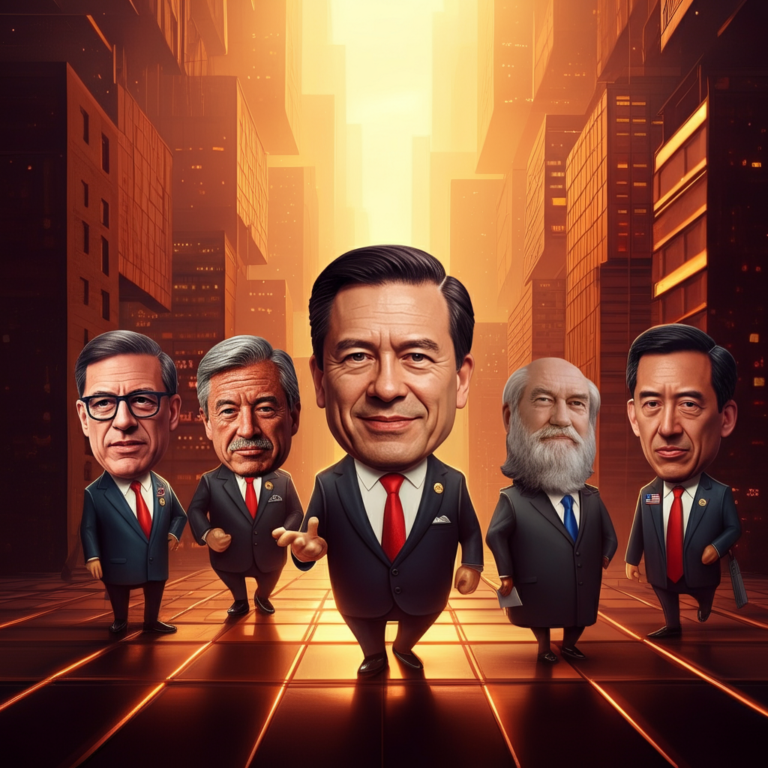Introduction
How many times have you scrolled through social media, chuckling at a clever meme about a political situation? Political memes have become a cultural phenomenon, mixing humor with surprisingly impactful messaging. Yet, these seemingly light-hearted images and captions often wield considerable power in shaping public opinion, influencing voters, and framing political debates.
But what makes political memes so influential? How do they manage to communicate complex ideas with just an image and a few words? And is their influence always positive, or can it sometimes distort the truth?
This post dives into the fascinating world of political memes to understand their role in modern-day political discourse. From their persuasive power to the risks they carry, we’ll explore how these little pieces of internet humor are shaping societies and democracies worldwide.
What Are Political Memes and Why Do They Matter?
At their core, memes are small units of cultural information. A political meme combines humor with commentary on political issues, personalities, or ideologies. It typically uses satire or irony to distill complicated topics into simple, shareable content. Think of an image of a politician with a witty caption—funny on the surface but often layered with political commentary.
The real importance of political memes lies in their ability to spread like wildfire over social media. A single image with a clever message can reach millions within hours, shaping public discussion around a specific narrative. Memes allow political messages to break free from traditional media gatekeepers and land directly in the hands of everyday people.
How Political Memes Shape Public Opinion
1. Simplifying Complex Issues
Political topics are often nuanced and intricate. However, memes boil these issues down into bite-sized, digestible nuggets of information. For example, a well-crafted meme might summarize a politician’s stance on climate change in just one witty sentence.
While this simplification makes ideas more accessible, it also limits their depth. It provides a swift overview rather than a comprehensive understanding, making it easier for people to form quick opinions without fully engaging with the details.
2. Evoking Emotional Responses
Political memes thrive on eliciting emotional reactions. Whether outrage, laughter, or even nostalgia, memes provoke feelings that resonate deeply with audiences. Research shows that content triggering emotions—particularly humor or anger—is more likely to be shared, giving memes incredible reach.
For example, during the 2016 U.S. presidential election, memes mocking specific candidates for their controversial statements garnered millions of shares, reinforcing particular viewpoints among voters.
3. Influencing Political Narratives
Memes are potent tools for setting agendas and framing debates. They focus public attention on specific issues or events, often creating a narrative around them. For instance, a meme targeting a policy decision might become so viral that it drives widespread criticism and forces policymakers to address the public outcry.
One notable example is how meme culture criticized Big Tech after high-profile data privacy scandals. Memes riffing on topics like surveillance and personal data influenced larger discussions about corporate accountability and government regulations.
4. Amplifying Tribalism
While memes can unite like-minded individuals, they often reinforce echo chambers. A political meme may highlight divisions between differing ideologies, fostering “us vs. them” mentalities. This tribalism can escalate polarization, as people are more likely to share content aligning with their beliefs while dismissing opposing viewpoints.
The Benefits of Political Memes
Political memes aren’t inherently good or bad; their impact depends on how they are used. Here are some positive ways memes contribute to modern political conversations:
- Engaging Younger Audiences: Younger voters, often disengaged from traditional political discourse, are more likely to interact with and understand politics through memes. A meme featuring a funny take on an election issue may educate them and spark interest.
- Grassroots Activism: Memes provide a platform for voices outside mainstream political parties. Activists often use them to draw attention to underrepresented topics like climate justice, racial inequality, or mental health policies.
- Creative Expression: Political memes showcase how creative expression can be intertwined with civic engagement. They add an artistic, humorous layer to complex societal issues, encouraging participation in otherwise stiff political conversations.
The Risks and Downsides
However, memes also come with significant concerns, particularly when it comes to misinformation, manipulation, and oversimplification.
1. Spreading Misinformation
The satirical nature of memes can sometimes blur the line between truth and fiction. A cleverly doctored image combined with a witty caption might seem harmless but can spread false information that misleads its audience.
For example, during significant political events like elections or referendums, deliberately misleading memes have been used to manipulate public opinion and influence outcomes.
2. Reinforcing Stereotypes
While many memes are lighthearted, others can perpetuate harmful stereotypes or amplify prejudice. This becomes especially concerning when these memes target specific groups or individuals, as the humor is often used to mask discriminatory undertones.
3. Decline in Nuance
Political memes often favor simplicity over complexity, which means they leave little room for nuance. While this helps with clarity and virality, it also risks oversimplifying critical issues and missing vital perspectives.
The Role of Memes in Future Political Discourse
With political memes becoming deeply embedded in global online behavior, their influence is only set to grow. Here’s what we can expect in the coming years:
- AI-Generated Memes: Artificial intelligence may create memes tailored to specific audiences, further influencing public opinion.
- Fact-Checked Memes: As awareness around misinformation grows, platforms might introduce fact-checking tools for viral memes.
- Memes in Diplomatic Messaging: Politicians and governments are increasingly using memes as part of their communication strategies to engage younger audiences more relatable.
Using Critical Thinking to Navigate Memes
It’s undeniable that political memes have evolved into powerful tools for communication, education, and activism. However, as social media users, it’s essential to approach memes with a healthy dose of skepticism and critical thinking. Ask yourself these questions when a political meme catches your eye:
- Does the meme accurately represent the issue?
- Could the image, text, or data be edited or taken out of context?
- What sources can verify the claims made in the meme?
By evaluating memes critically, we can enjoy the humor while ensuring we don’t unintentionally perpetuate misinformation or bias.
Takeaway
Political memes may seem like harmless humor, but their impact is far-reaching. They simplify complex issues, evoke emotions, and influence public discussions in ways unmatched by traditional media. However, their ability to amplify tribalism and spread misinformation requires cautious consumption.
Memes are shaping the future of political discourse—whether for better or worse depends on how we create, share, and interpret them.





















0 Comments